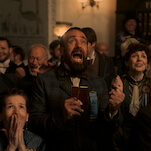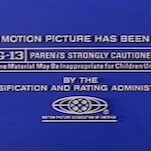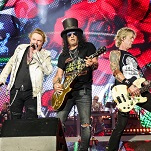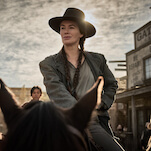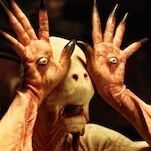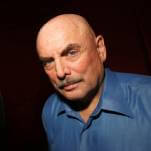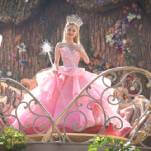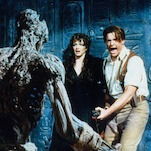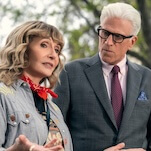The "Can Natalie Portman Act?" Conundrum

With only a few days left until this year’s Academy Awards, Natalie Portman is the presumptive favorite to take home the Oscar for Best Actress, for her harrowing, exhaustingly physical performance in Darren Aronofsky’s hyperbolic ballet melodrama Black Swan. It’s Portman’s second Oscar nomination, and if she wins she’ll be beating out impressive newcomer Jennifer Lawrence, veteran nominees Annette Bening and Michelle Williams, and former winner Nicole Kidman. That isn’t bad at all for an actress that a surprising number of critics think isn’t very good at her job.
The recurring knocks against Portman are expressed best by Time Out New York’s Lisa Rosman, who says of Portman in a review of the recently released The Other Woman that the actress “seems unlikely to ever achieve a tone between histrionic and affectless.” Even some critics who profess to like Portman’s performance in Black Swan have credited Aronofsky first and foremost for making good use of Portman’s limited range. Slate has run two pieces over the past month that chalk up the Portman’s recent success to factors other than her acting: In one, Nathan Heller takes an overarching approach to Portman’s career, describing her as an exemplar of a generation of “overdriven dilettantes” who do a little of everything, but fail to become virtuosos at anything; in the other, Tom Shone suggests that Portman’s performance in Black Swan is little more than a stunt, a geek show, an invitation to audiences to watch her punish her own body. And over the past week, a “supercut” video of Portman crying in movies has been making the rounds, predicated on the joke that the more Portman emotes, the phonier she looks.
So… can Natalie Portman act? Well, at the risk of sounding wishy-washy, the real quandary here concerns “acting” itself, and what makes someone “good” or “bad” at it. It’s a question complicated every year by awards season, where the showiest performances often win, even though in some ways it’s easier for actors to play a role that requires a lot of scenery-chewing, physical transformations, and outrageous accents than it is for them to make an ordinary human being into someone audiences care about. Plus, actors rarely control what ends up on the screen. They can only deliver the lines the writers give them, while taking the guidance provided by the director and having their performance affected by the chemistry with their co-stars. Even then, the editor can still choose to leave their best takes on the cutting-room floor. Given all that, what are we actually weighing when we consider an actor’s skills?
Humphrey Bogart reportedly once said that the only fair way to decide who wins each year’s Oscar would be to have each nominee recite Hamlet’s soliloquy for the voters—which is ridiculous, because as critic Pauline Kael noted when asked about Bogart’s comment, not every great actor makes a great Hamlet. Some are more suited to playing action heroes, or bumbling romantic-comedy leads, or truck drivers. Versatility is a virtue for an actor, no doubt, and just about every year someone wins an Academy Award for playing a part way outside his or her norm. But as good as Philip Seymour Hoffman was in Capote or Cate Blanchett was in The Aviator, does anyone really think those were the best performances those actors have ever given? Isn’t there something to be said for the legacy of movie stars like Spencer Tracy or Audrey Hepburn, who stretched some in their careers but largely entertained audiences by playing variations on the same type?
That’s what I think gets lost in the discussion over whether Natalie Portman is a fine actress or just a nice-looking young lady of limited range who’s lucked into some good roles. Who says that Portman has to be rangy to be “good?” I saw The Other Woman, and while it’s not that great a movie, I found Portman very likable in it, playing a young wife who’s having trouble with her prickly, grade-school-aged stepson. Yes, she spends a lot of the movie either yelling and crying or playing it cool, but there’s a naturalness to Portman in both modes. When she goes big—as she does in Black Swan as well—Portman really commits, commanding attention with her lack of control. And when she goes small, she comes off like an ordinary person, distinguished by a casual wit and restless intellect that by all accounts the actress herself shares. Portman’s handicapped mainly by her voice, which can sound creaky and monotone in ordinary conversation. But that has nothing to do with whether she can act or not, because if Portman’s playing characters drawn from real life, well, some people actually have creaky, monotone voices.

